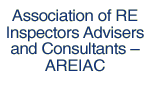|
The recent controversy regarding the arrangements for assembly and worship in a Sheffield primary school has indicated that this is an area of widespread confusion and misunderstanding.
Comment on the particular school is out of place because all the relevant facts are not known, except to say there is an obligation on all parties to act in accordance with the law and the best advice available.
General comment
With regard to collective worship, the Council acknowledges that - no pupil or teacher should be obliged to engage any school practice which is 'anti-educational' or offensive to deepest parental beliefs.
- the long-standing distinction between 'collective worship' and 'corporate worship' is drawn deliberately in law. It distinguishes the experience of exposure to stories, songs and prayers drawn from Christianity and other religious traditions from an experience which assumes one particular set of religious beliefs shared by all present.
- the wording “wholly or mainly of a broadly Christian character”, introduced by the 1988 Education Reform Act, was designed to provide flexibility which can take account of plurality of belief as well as diversities of family background. It refers to the majority of worship in schools.
- one of the responsibilities of the local Standing Advisory Council on RE (SACRE) is to assist individual schools with questions regarding collective worship.
- where specific school circumstances warrant it, a headteacher has a statutory right to apply to the local SACRE for a 'determination' which will permit exemption from the requirement for broadly Christian worship and/or provision of alternative worship for the whole school or a group within it. Such permission is subject to regular review.
Contention
The Council is also aware that the subject of worship in schools arouses contention in that
- the distinction between 'corporate worship' and 'collective worship' is often not properly understood. The former may be appropriate in 'faith schools', provided due regard is shown to 'conscience', but not in 'community schools'.
- very little education and training of teachers and senior management to promote good practice in collective worship is provided.
- according to Ofsted, most primary schools attempt some form of daily act of collective worship, usually through a school assembly, whilst most secondary schools do not. This widespread illegal practice is itself a reason for a review of the current legal position.
Guidance
The DCSF in conjunction with the RE Council is presently conducting a review of official guidance on RE. However, the review does not extend to worship in schools. The way in which the Sheffield case has been reported demonstrates the need for clearer guidance on worship also to be made available to schools and local authorities.
The RE Council
The RE Council of England and Wales itself comprises some fifty member organisations - professional associations and faith communities – who are committed to deepening and strengthening provision for Religious Education. It also has a strong interest in matters of collective worship, but strength of interest includes some differences of view regarding it within the Council's membership, including the position that it should be abolished altogether.
The Council is committed to working according to educational principles. It is also attentive to theological sensitivities within and between individual traditions of religion and belief. It recognises the centrality of RE to the 'community cohesion' agenda, as already expressed in the priority given to it by 1944 Education Act. Like SACRES - one in each Local Authority - it appreciates diversity and works by consensus.
|

 News
News  Latest News
Latest News  Latest News
Latest News  Worship in Schools
Worship in Schools




